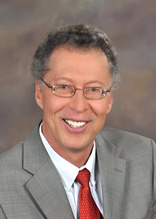Letter to the Editor: A South Dakota Water Lottery
Posted Aberdeen American News, Farm Forum: Monday, October 13, 2014 9:08 am
by David Ganje
While it has yet to come to the attention of the national environmental and natural resources community, the South Dakota state legislature passed a first-in-the-nation law this year in the field of natural resources. The state will use a ‘lottery system’ for the issuance of certain state managed water permits. The water lottery system is combined with a moratorium on water use for identified water bodies managed by the state. Under current South Dakota law, all water within the state’s jurisdiction is property of the people of the state. The right to the use of water may be acquired by private parties and municipalities by a state-managed appropriation procedure. The state has been historically a first in time, first in right state when granting water use rights. South Dakota’s ‘water management’ jurisdiction does not however apply to Indian Country or on federal lands. Water use in South Dakota is authorized when the state Water Management Board grants a private, beneficial use of the state’s water resources. An example of a private use is an irrigation permit. A water use permit is issued either as a new water use or as a vested water right for an existing water use if it predates 1955.
The new water lottery system comes into play in situations where the state Water Board has determined that an existing groundwater source is ‘fully appropriated.’ A water source is fully appropriated when the state rules that no new or further access to the water should be granted because it would prejudice the ability of the water source to recharge to an acceptable level. The lottery system will not apply to open or unappropriated aquifers. The Water Board under the new legislation can accept water permit applications even for a fully appropriated aquifer. A 30 day application time period will also be set for a fully appropriated aquifer by public notice. The notice gives prospective applicants the right to apply under the lottery system. The applications are then placed in a lottery drawing system. The actual method for drawing successful applicants has not yet been implemented but will be announced in the next several weeks. The ‘winning’ applicants will then have to wait under the state’s five-year moratorium on approval of permits in those instances when the state has made a designation of a ‘fully appropriated aquifer.’
A lottery system for resource development permits has been used in the past, but never by a state for access to state managed water. The U.S. Bureau of Land Management used a lottery system for granting oil and gas leases until 1987 but has not used it since. The state, of course, does not call this new law a lottery system. I do. The new unchallenged law describes the lottery system as a procedure in which, “the board shall create a priority list using a random selection process to be determined by the board.” This new lottery system is an effort to cure problems in past experiences when an aquifer is placed in a moratorium. One cannot criticize the conceptual fairness of the new law. The statutes attempt to treat water permit applicants seeking access to a particular aquifer equally by using the “random selection process” in a moratorium scenario. The law itself has some challenges in its language as well as in its untested procedure. It is soon to be implemented by the state Water Board and the S.D. DENR. The new law is a unique effort by the state to deal with natural resources stewardship issues. In that regard the legislature should be applauded. Will the bar of reason support this brave new attempt at fairness? Time will tell.
Tags: Environmental Law, Infrastructure Security, Natural Resources Law, Water Law, Water Regulation, Water Rights, Water Systems Security





